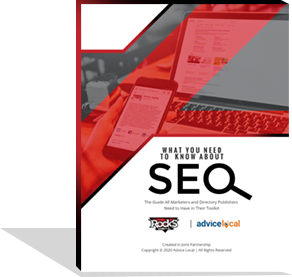
There’s a fairly common idea floating around about SEO that’s becoming less true every single day. For some reason, people are still insisting that there’s only one surefire way to rank in SERPs aka the front page on Google, Bing, or any other search engine: being long-winded.
Is Long Content the Secret to Rank in SERPs?
If you break down the argument, it appears to make sense: search engines want longer pieces to rank because they want to deliver the most comprehensive answer to their users. More than that, their algorithms won’t even be able to understand a piece’s relevance unless something finally “sticks” in a piece that’s 3000+ words long.
But if all that is really the case, then why are we seeing featured snippets pop up on the front page? What about all of the shorter pieces that appear to rank perfectly well?
Long Articles: The Pros and Cons
There are many benefits to writing long-form content, and that’s why there is such a strong argument for producing it.
The benefits of long-form content writing include:
- Users spending more time on your pages
- The ability to use keywords without having the need to “stuff” them in
- Having more opportunities for users to interact with your content
- The opportunity to have the most comprehensive, authoritative piece on a subject
That list isn’t at all comprehensive, so you can only imagine the total amount of benefits that play to your advantage when you write longer content.
You can send some serious positive SEO signals from your site if you successfully write a lengthy piece that makes use of all of these benefits.
But sadly, long articles are highly vulnerable. Why is that?
Attention spans.
Let’s face it, ever since the introduction of social media into society they’re getting shorter and shorter.
Everything about SEO that says “write long-form” seems to be in direct opposition to what we’re learning about our own attention spans.
Imagine walking into a camera store to buy a camera that will bring you a step up from phone photography. At this point in time, you’re not really passionate about photography – you simply have a vacation coming up and want to learn a thing or two about snapping some decent photographs.
All you really need to know is how to set up the camera with beginner-friendly settings. You just want to know which buttons to press and when.
But instead, assume that the associate selling you the camera dives into the history of photography, the long list of features the camera has, and the difference that setting aperture, shutter speed, and ISO values can make. During his presentation, he even invites several other experts over to share their opinions.
In the end, your questions are answered, but you still walk away frustrated. Why? Because you could have gotten a much simpler answer somewhere else.
This is the difference between long- and short-form content. On certain subject matter, you must assume that your audience is coming to you out of necessity, not passion. And in these cases, a long-form answer just isn’t right.
If you’re asking yourself what becomes of all the SEO benefits listed out earlier when the switch is made to short-form content, know this:
Most of the SEO benefits of a long-form content piece only exist if you can actually get someone to read through your content. If they choose to click away instead, you’ll face the one negative SEO signal that is thought to be strongest of all: pogo-sticking.
In SEO, pogo-sticking refers to the action of a user entering your site, reading for a little while, and then going back out of your site and to the SERPs (search engine result pages) again.
That simple series of steps informs search engines that a user’s request was not satisfied by the content on your site.
Because of that, you can probably see how short articles have their benefits as well when it comes to SEO.
Short Articles: The Pros and Cons
It’s easy to see how short-form articles can be a convenient way to answer questions quickly, but do they really perform in terms of SEO?
That all depends on who you believe.
Some SEO experts will tell you that there’s very little benefit in having someone on your site for a short period of time, but others will tell you that satisfying a search request is powerful – no matter how long it takes.
In my opinion, search algorithms are becoming more intelligent every day. Even now, they seem to understand that some queries just don’t take that long to answer. If someone looks up “How old is Max Greenfield?” is it really necessary to write an extensive article?
Definitely not.
But if the answer doesn’t have to be comprehensive, then I’m of the opinion that search engines won’t require it either. They’ll allow for short pieces to rank based on other factors.
I was once shocked to find a client’s piece ranking in the SERPs that consisted of just two or three sentences of copy and some relevant links. The page was designed more as an organizational necessity than anything that was supposed to rank for SEO. And yet, there it was on page one!
But why was the piece there?
Because it was exactly what people needed to find in response to their query – a query that wasn’t even used as a keyword in the copy.
While it’s true that pages like these tend to have high bounce rates and low amounts of time spent on page, they usually don’t lead to pogo-sticking or other more dangerously negative results – so long as they’re answering the query. Because of that, search engines like Google are able to ignore weaker signals that might otherwise be considered “negative” in exchange for the confirmation that a searcher’s query was satisfied.
Short vs. Long: Is One Always Best?
So when you sit down to write, is there a specific word count you should be shooting for?
Not at all. Instead, focus on clearly answering the query that brought someone to you. That may take 10 words, but it could also take 10,000 – the key is to know which is appropriate.
What Are You Going to Do Different to Rank in SERPs?
As a general rule of thumb, consider whether the piece you’re writing is need-based or interest-based. If someone is generally interested in learning more about a given subject, they’re likely to read on if your article is engaging. If they’re just looking to get a question or two answered, it’s unlikely that they’ll stay long – even if the copy is flawlessly written.
Just consider your audience and what they want from your content – the rest should work itself out.
How is your content currently ranking? Are you going to change your strategy now? Let’s discuss in the comments.
Eric Johnson
Eric Johnson is a Digital Content Creator for FeedbackWrench. He specializes in building web presences for small business owners.


















